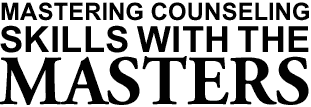
Conference Home |
Continuing Education |
Conference Site |
Conference Prices |
Registration
|
 |
 |
 |
|
7:30 - 8:30 A.M. — Registration |
| 8:30 - 10:00 A.M. — Taming Terror: Managing Our Emotional
|
|
|
Responses to the 9/11 Attacks |
David Spiegel, M.D. |
| |
Effects of the terror attacks on our emotional, cognitive, and social functioning
are reviewed, along with data on the coping styles associated with acute and
post-traumatic stress and resiliency, based on our inherent survey of some
7,500 people in all 50 states and 39 countries.
David Spiegel, M.D.
Stanford
University, School of Medicine, Jack, Lulu & Sam Willson Professor in the
School of Medicine, Associate Chair of Psychiatry & Behavioral Sciences,
Medical Director, Center for Integrative Medicine, Author, Group Therapy for
Cancer Patients, Basic Books, N.Y., 2000.
|
10:30 - 12:00 Noon — Mind Matters: Effects Of Stress and Support |
|
On Cancer Patients
|
David Spiegel, M.D. |
| |
Dr. Spiegel reviews the emotional stresses faced by cancer patients, and the
basic principles of supportive/expressive group therapy designed to help them face their fears, build
social support, express emotion, detoxify fears of dying and death, revise life priorities, improve
communication with family, enhance relationships with doctors, and control pain. This kind of support
reduces distress and pain, and in some but not all studies, even extends survival time. The pathways
linking mind and body is reviewed, including the hormonal and immune systems.
|
12:00 Noon - 1:15 P.M. — Lunch (on your own) |
1:15 - 2:45 P.M. — Engaging Resistant and Hostile Clients |
| |
into
Participatory Treatment |
David Mee-Lee, M.D. |
| |
Many clinicians deal with resistance and hostility with confrontation to �break
through denial�, or passive styles of psychotherapy to explore psychodynamics
and internal conflicts. This presentation suggests concepts and strategies to
�engage� people into participatory treatment and finesse counseling skills
to prepare people for change.
David Mee-Lee, M.D.
Psychiatrist who
trains and consults full-time (www.DMLM.com), Chief Editor, ASAM Patient
Placement Criteria for the Treatment of Substance-Related Disorders.
|
3:00 - 4:30 P.M. — CONCURRENT WORKSHOPS |
| |
Developing the Treatment Contract � |
| |
What Does the Client Really Want? |
David Mee-Lee, M.D. |
| |
This workshop helps participants to truly collaborate with the clients to define the
focus of treatment and develop accountable, person-centered services. It will teach skills that help
retain people in treatment and encourage honesty, not game playing; accountability, not arguing
and confrontation.
|
| |
|
| |
Romancing the Stoned: Engaging
Highly Intellectualized |
| |
Substance Abusers |
Richard Fields, Ph.D. |
| |
This presentation focuses on intervention points, and issues for the very bright,
highly intellectualizing substance abuser. The dynamics of �engagement� are
illustrated using film and case examples. The role of �optimism� in recovery
is also explored.
 Richard Fields, Ph.D. Richard Fields, Ph.D.
Author,
Drugs in Perspective, 5th edition, McGraw Hill, 2003. Private Counseling
Practice, Tucson, AZ & Bellevue, WA.
|
| |
|
|
| Return to the Top of the Page |
| |
|
|
|
8:00 - 9:00 A.M. — Registration |
9:00 - 10:30 A.M. — Attachment Theory & Affective |
|
Neuroscience
in Clinical Action |
Diana Fosha, Ph.D. |
|
Recent advances in attachment theory, affective neuroscience and developmental
research are radically reshaping our understanding of how brain and psyche work. This keynote focuses on the implications of these developments for clinical practice and
will use videotapes of actual therapy sessions to illustrate the experiential therapeutic work where
emotion and relatedness are front and center.
Diana Fosha, Ph.D.
Associate Professor of Psychology,
Adelphi University, The Derner Institute of Advanced Psychological Studies,
New York, N.Y., Author, The Transforming Power of Affect: A Model of
Accelerated Change, Basic Books, 2000, Developer, Accelerated Experiential-
Dynamic Psychotherapy (AEDP).
|
10:45 - 12:15 P.M. — The Healing Affects and the Affirmation
|
| |
of Transformation |
Diana Fosha, Ph.D. |
| |
When people have therapeutic experiences, they feel seen, understood and
valued. It is in this realm that we find a crucial frontier to the healing of trauma � restoring not only
the capacity to love, but also the capacity to feel loved. The full experience of this, in turn, gives rise
to the �core state�, a state where vitality, ease, calm, and relaxation prevail.
|
12:15 P.M. - 1:30 P.M. — Lunch (on your own) |
AN AFTERNOON WITH DR. IRVIN D. YALOM
|
|
1:30 - 3:00 P.M. — The Gift of Therapy: |
| |
Existentially Flavored Tips |
Irvin D. Yalom, M.D. |
| |
Dr. Yalom presents material from his last work �The Gift of Therapy� as well
as presenting new material on the therapeutic characteristics of the therapist
patient relationship, therapy and patient self disclosure, the pragmatic use
of dreams in therapy and how to beware the Occupational Hazards & cherish
the Occupational Privileges of our profession.
Irvin D. Yalom, M.D.
Professor Emeritus of Psychiatry Stanford University, Author, Existential
Psychotherapy. Author, Group Psychotherapy. Newest book, The Gift of
Therapy, 2002.
|
3:30 - 5:00 P.M. — Work in Progress: A New Novel on Group |
|
|
Therapy and Arthur
Schopenhauer |
Irvin D. Yalom, M.D. |
| |
Dr. Yalom will present a biography of a novel. The theme
of the novel is an outpatient therapy group meeting for a year in which one of the members is a
Schopenhauerian and attempts to apply his philosophical perspective to the process of therapy.
Group therapy principles will be discussed to include: self-disclosure, the use of the here and now,
death anxiety, meaning in life, adaptive conflict, the genuineness of the therapy relationship.
|
| |
|
|
| Return to the Top of the Page |
| |
|
8:00 - 9:00 A.M. — Registration |
9:00 - 10:30 A.M. — How We Recover from Trauma |
|
|
Lenore Terr, M.D. |
| |
Two to three weeks after Dylan Klebold and Eric Harris attacked Columbine
High School on April 20, 1999, students in the Columbine junior class wrote
essays about how they were experiencing it. These 111 essays illustrate 3 mechanisms
young people employ in order to overcome trauma. These 3 mechanisms
abreaction (emotional expression of the experience), context (understanding
and finding perspective) and correction (fixing or preventing the experience) are illustrated.
Lenore Terr, M.D.
Clinical Professor of Psychiatry, University of California,
San Francisco School of Medicine, San Francisco, CA, Author, Too Scared to
Cry; Author, Unchained Memories: The Stories of Traumatic Memories: Lost
and Found; Author, Beyond Love and Work: Why Adults Need to Play.
|
10:45 - 12:15 P.M. — How 3 Principles of Psychotherapy |
| |
Helped a �Wild Child� Traumatized
in Infancy |
| |
|
Lenore Terr, M.D. |
| |
Abreaction, context, and correction are principles, which must
be kept in mind in treating traumatized youngsters. Dr. Terr will show how in each phase � from
toddlerhood, through preschool, latency, and adolescence � the trauma reared its ugly head. Dr. Terr
also will show how the three therapeutic principles were applied in each phase. Illustrations of the
child�s drawings over a dozen years will be shown. |
12:15 P.M. - 1:30 P.M. — Lunch (on your own) |
1:30 - 3:00 P.M. — CONCURRENT WORKSHOPS |
| |
Using Abreaction, Context, and Correction for Brief |
| |
Interventions |
Lenore Terr, M.D. |
| |
Group therapies, fixed-time-frame treatments, art and play therapies, and school
interventsions can make use of the 3 principles of trauma psychotherapy. In this seminar we consider
time management issues, techniques of administrating the therapy, and how to get the client, not
the therapist, to come up with the crucial insights. |
| |
|
|
| |
Personal Mythology & Therapy: Discovering the Stories that
|
| |
Bind and the Stories that Set us Free |
Hendrika de Vries, M.T.S.,
M.F.T. |
| |
Personal myth is the lens through which we evaluate everything we
encounter and determine how we will respond. Hendrika discusses the
archetypal symbolism in our lived narratives and looks at the power
of mythic imagination to transform obstacles and conflicts into events
of meaning and possibility. The interdependence of personal, family,
and cultural mythology is addressed.
Hendrika de Vries, M.T.S.,
M.F.T.
Teacher Mythology & Personal Transformation, Pacifica Institute,
Carpenteria, CA, Licensed M.F.T., Santa Barbara, CA.
|
| |
AHA! ANGER, HOSTILITY, AGGRESSION: |
| |
It�s Not Just Anger |
Michael Leeds, Ph.D. |
| |
Through didactic presentation and structured learning experiences increases
awareness and skill level in understanding and managing Anger, Hostility,
and Aggression (AHA) with children and adults.
Michael Leeds, Ph.D.
International and Community Mental Health Trainer
and Consultant, Eugene, OR.
|
3:15 - 4:45 P.M. — CONCURRENT WORKSHOPS |
| |
Managing Uncivil Behavior |
Michael Leeds, Ph.D. |
| |
Americans
report that disrespect, lack of consideration and rudeness are serious,
pervasive problems that affect them on a personal, gut level. This workshop examines the dynamics
of anger and hostility and the risks they present. This workshop explores successful methods for
coping with uncivil behavior, and therapeutic methods for dealing with the angry student/client.
|
| |
|
|
| |
Mythical Imagination in Relationships: An Archetypal Approach |
| |
To Relationship
Conflicts & Issues |
Hendrika de Vries, M.T.S.,
M.F.T. |
| |
This presentation is designed to
demonstrate the power of working with archetypal patterns and motifs in couples� conflicts. Drawing
on the ancient wisdom of the human imagination, we look at dreams and mythic imagination as
powerful therapeutic tools that can help reveal both the problems and the possibilities in couples�
issues and create a safe container for developing new relational patterns.
Michael Leeds, Ph.D.
|
| |
| Return to the Top of the Page |



